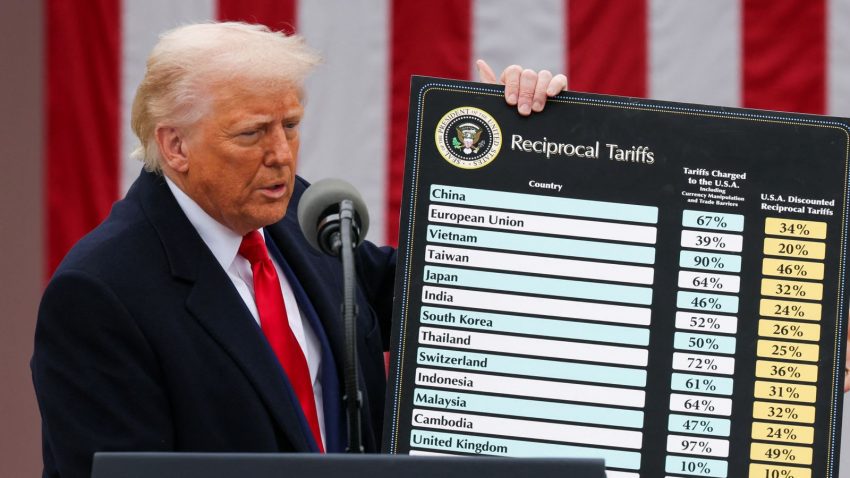With all the talk about tariffs and global trade wars and politicians, it can be easy to overlook just how the tariffs might affect everyday people.
We previously reported, see our 9.04am post, on how one British business was reacting.
But let’s take a look at one incredibly popular product and how tariffs might impact that.
Apple’s iPhone
One of the most popular smartphones on the market, Apple’s iPhone is a beloved product relying on a chain of resources and production spanning the globe.
Like all companies with exposure in China, the immediate impact on Apple saw it drop 7.3% in the aftermath of Donald Trump’s tariffs.
This exposure is exemplified by the world’s largest iPhone manufacturing facility being in the Chinese city of Zhengzhou.
Apple does a large proportion of its production in China.
The Zhengzhou branch is operated by Foxconn – an important manufacturer and a supplier for Apple.
Trump slapped an additional 34% tariffs on China – bringing total levies to 54%.
Trump also put a 32% tariff on Taiwan, though the bulk of
Foxconn’s factories are located overseas.
In short, the US tariffs risk jacking up costs.
There are worries that companies will then pass these costs along to consumers.
Based on projections from Rosenblatt
Securities, a top-end iPhone could cost nearly $2,300 (£1,783) if Apple passes on the costs.
They currently go for around $1,600 (£1,240).
This is a similar situation that all companies are facing with similarly global supply chains.
